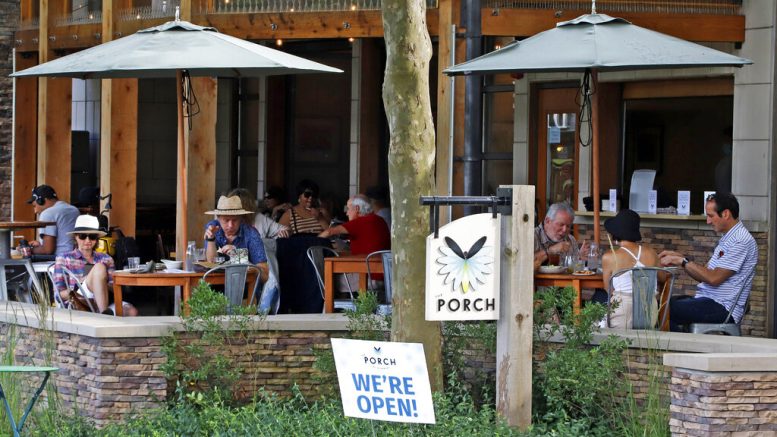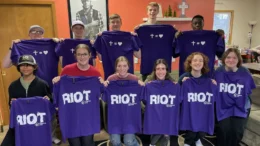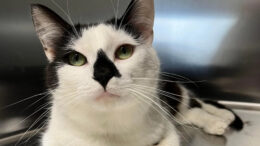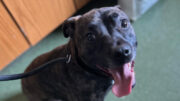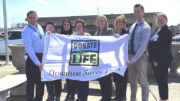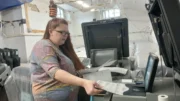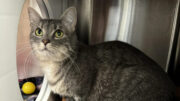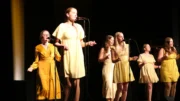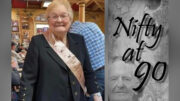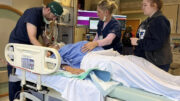HARRISBURG (AP) — Pennsylvania is imposing broad new statewide restrictions on bars and restaurants and larger indoor gatherings, Gov. Tom Wolf announced Wednesday, citing an “alarming escalation” in new coronavirus infections and heavily criticizing people who he said had ignored public health orders.
Nightclubs will be shut down, bars will be closed unless they also offer dine-in meals, and bars and restaurants will be limited to 25% capacity under Wolf’s order, which takes effect Thursday and also requires companies to have their employees telework to the extent possible.
The new restrictions, coming more than two months after Pennsylvania began reopening its virus-battered economy, risked major backlash in large swaths of the state where COVID-19 has largely been kept at bay.
Republican lawmakers have staunchly opposed most of Wolf’s restrictions since mid-April and accused him of behaving like a dictator, abusing his power and failing to consult lawmakers on his plans.
“The irreversible impact of his countless, confusing orders cannot be overstated,” House Majority Leader Kerry Benninghoff, R-Centre, said in a written statement. “Gov. Wolf’s decision today will close the doors of some small businesses forever and devastate the livelihoods of so many Pennsylvanians who were just beginning to feel hopeful for the future.”
The Pennsylvania Chamber of Business and Industry and the National Federation of Independent Business questioned why the order couldn’t be tailored to areas seeing an outbreak, or why stronger enforcement couldn’t be wielded against rule-breakers.
But Wolf warned that a “new surge is in the offing” that could eclipse what happened in the spring, when the virus killed thousands and sickened tens of thousands of Pennsylvanians.
The Democratic governor said people who refused to wear a mask or abide by social distancing requirements while patronizing bars and restaurants are responsible in part for the virus’s resurgence in the state.
“This carelessness has resulted in pockets of super-spreading,” Wolf said.
He also cited out-of-state travel to virus hot spots, and blamed states in the South and West for “not committing to the things they should’ve done to keep this virus from spreading.”
“We did everything we should’ve done, we were responsible, and yet we’re paying the price right now,” he said.
Under Wolf’s order, indoor events and gatherings of more than 25 people are prohibited, though administration officials said places of worship are exempt. Gyms are allowed to remain open but are supposed to “prioritize outdoor physical fitness activities.” The new restrictions on bars and restaurants say alcohol may only be served on site with a meal.
A group representing liquor licensees asked for financial relief, including the elimination of state fees and deeper discounts on liquor sold to bars and restaurants by the state.
“People have paid their license fees and are unable to use them. People have brought staff back and will probably have to lay them off again. It’s not a good situation if you’re a licensed tavern or restaurant,” said Chuck Moran of the Pennsylvania Licensed Beverage and Tavern Association.
The state Health Department reported 994 new positive virus cases Wednesday, bringing the statewide total to more than 97,000. The department reported the results of nearly 29,000 virus tests, the highest one-day total since the beginning of the pandemic, and 26 new deaths, raising the statewide toll to 6,957.
Pennsylvania’s recently elevated statewide virus numbers have been driven in large part by increased spread in the Pittsburgh area, where officials attribute the spike to people congregating in bars and restaurants.
Allegheny County, which had already imposed temporary restrictions on restaurants and bars, on Wednesday reported 246 additional infections from tests performed between June 30 and July 14. Infection numbers are also up in neighboring counties.
There’s evidence the virus is likewise resurgent in south-central Pennsylvania and the Philadelphia area, according to Dr. David Rubin, director of PolicyLab at Children’s Hospital of Philadelphia, which developed a virus tracking model.
Rubin, who took part in the governor’s news conference, said that school reopenings will be in jeopardy unless the state acts decisively while case numbers are still manageable.
The Philadelphia school district announced Wednesday that it plans to resume limited in-person instruction in the fall, with most students in class just two days per week and learning remotely the other three.
“We’re already at a tipping point where we really have to act. We don’t want to become Florida. We don’t want to become Texas. We don’t want to become Arizona. We have got to act now,” said Wolf, naming three GOP-run states where the virus has been surging.
In other coronavirus-related developments in Pennsylvania on Wednesday:
ONLINE LEARNING
East Stroudsburg University has become the second school in Pennsylvania’s 14-school, state-owned university system to announce that it will conduct the fall semester almost entirely through remote instruction because of the virus threat.
“While we were certain we could all return to campus with a ‘new normal’ this fall, we know now that this is not the safest, most realistic, option for our greater ESU community,” the school’s president, Marcia Welsh, said in a written statement.
A “very limited” number of classes will be offered for both remote and in-person formats for student teaching, clinical placements, internships and other situations, Welsh said.
West Chester University also said it will continue remote instruction in the fall. Pennsylvania’s larger independent universities, thus far, are planning to conduct classes through in-person instruction, with many offering an option for remote learning and some limits on class size.
FALL COLLEGE SPORTS
The Pennsylvania State Athletic Conference announced Wednesday that it has canceled fall sports.
The decision affects 18 schools, primarily those in the state-run university system.
“The entire conference has worked hard these last few months to prepare for the return of sports to our campuses beginning this fall,” PSAC Commissioner Steve Murray said in a news release. “However, it has become apparent that the safe conduct of sports under the guidelines of social distancing is untenable for our members.”
The conference said it’s hoping to shift fall sports to the spring semester. A decision on winter and spring sports will be made later, PSAC said.
GUN PERMIT EXTENSION
Pennsylvania residents will be allowed to carry guns on expired permits for a little longer.
Gov. Tom Wolf on Wednesday granted another extension for holders of concealed carry permits. State police said that permits that expired March 19 or later have been extended to Sept. 30. The extension was granted because of the ongoing closure of some county courthouses and sheriff’s offices.

